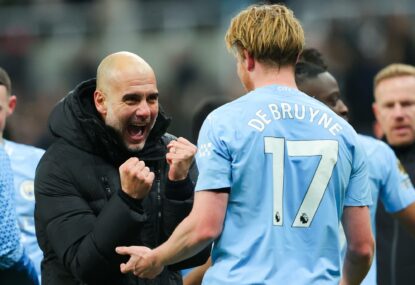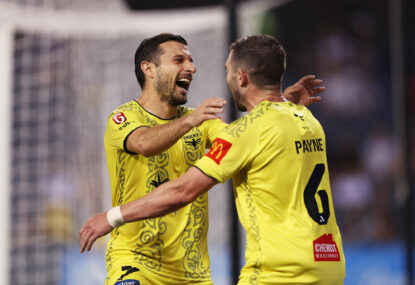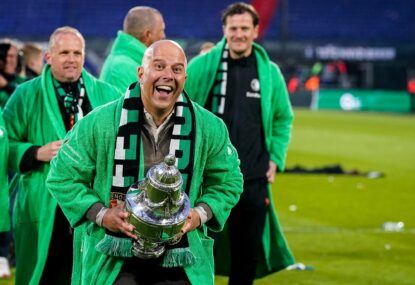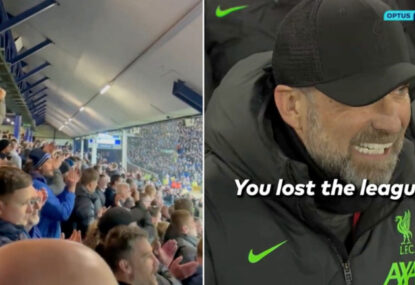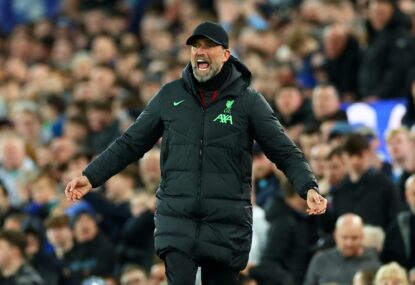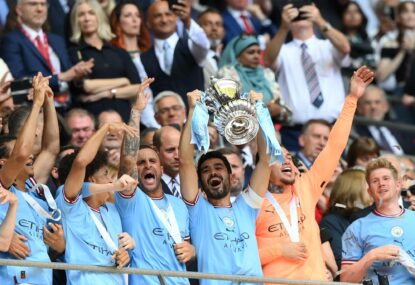Here we are again. Another tedious international break.
As Albert Camus, or probably Phil Ball said, “time is an awkward inconvenience between football matches.”
I’ve used it to finally get around to reading Robbie Dunne’s interesting, but often rambling and confusing book, Working Class Heroes: The Story of Rayo Vallecano, Madrid’s forgotten team.
Forgotten? Not right now. Despite having only just re-emerged from the Segunda División, the ‘lightning’ of Vallecas occupy the heady heights of sixth place in La Liga. Just four points behind their illustrious neighbours and league leaders, Real Madrid.
Mostly, though, Rayo lives in the shadows of Real and Atlético Madrid, and more recently Getafe who’ve been more in than out of La Liga the past two decades. This is just Rayo’s 19th season in the top-flight since 1940.
It’s more than being a very small fish in a very big pond, though. Vallecas is to Castellana, Madrid’s chic inner city district and home to Real Madrid, as Inala and Darra are to the leafy streets and cafés of Paddington and Ashgrove here in Brisbane.
Rayo’s mere presence near the top is a big middle finger to the Spanish establishment, their more illustrious neighbours and the ultra-capitalism of modern football.
Rayo’s supporters are working-class, mostly poor, left leaning and very proud of it. Even when Rayo are propping up La Liga, or not in it at all, they make news outside Spain.
The Roman Zozulya affair a couple of years ago almost broke certain sections of the internet.
Rayo’s supporters are currently in open rebellion against the club’s owner and, as usual, Rayo is close to broke.
Robbie Dunne’s book is based around the notion of Rayo as a football club indistinct from a social and political movement.
They’re supposedly descendants of the fifteenth brigade who defended Madrid during the Civil War; guardians against the rise of modern black shirts; social justice activists; and those who rally around a local pensioner about to be evicted from her humble Vallecas apartment.
Don’t worry, this isn’t a paean to socialism or a football club raging against a system that’s long left it behind. There’s something more interesting about Rayo and Vallecas.
There’s a grungy sort of street at Darra, a couple of minutes from where I live. It’s populated by businesses owned by Vietnamese and Chinese Australians selling delicious morsels and specialty imported goods.
It’s stubbornly holding out against the relentless march of gentrification. Your credit card won’t be much use there – you’ll need cash to sample those morsels.
It’s very solid Labor territory.
But sitting on a bollard and munching on a pork roll one witnesses young and old, working and professional classes, new migrants, descendants of older ones and Indigenous peoples. Businesses ring in catering orders, hoping to impress at the big meeting they’ve just locked in.
It’s a cross-section of most of Australia. But an oddity, a little pocket of disorder in a stratified society.
It’s vaguely akin to the Vallecas Robbie Dunne describes. Darra and Vallecas were both pretty rough areas where many outsiders feared to tread.
These days everybody’s welcome, from migrants and the marginalised to well-off hipsters and curious journalists
Rayo’s presence among the elite is like Darra having its own top-flight football team. Did I hear rugby league’s expanding? Never mind Redcliffe. Ditch the pies and head out west for bánh mì. You know it makes sense, Mr V’landys.
Vallecas is the type of barrio typically ripe for picking by passing populists and snake-oil salesmen, but it isn’t. It stubbornly refuses to conform to type.
Rayo and Vallecas are agents of disorder. It’s not just a rejection of the status quo, it’s a rejection of a status quo; of what might happen without stubborn resistance. Look at Girona. And Newcastle.
La Liga’s marketing department would probably prefer to not have Rayo and its malcontents beamed around the world under its corporate logo. But Rayo’s earned that place.
Will they persist? Rayo’s current President, Raúl Martín Presa – the one Rayo supporters are already furiously rebelling against – doesn’t seem like he would necessarily be averse to Rayo becoming a subsidiary of a global conglomerate or a plaything in a foreign government’s soft power exercise.
Sure, there’d be a boycott and widespread protest. Threats, acrimony and recrimination writ large.
Many Rayo supporters claim to be less concerned about what division the club occupies – they’ve spent almost as many seasons in the third tier as La Liga the past two decades – than having a club they’re proud of.
But what if Rayo’s owner did sell-out, the club stayed roughly where it is now and played a few seasons in Europe? What if Rayo started signing young stars rather than those at the end of their careers, like the current hero Radamel Falcao?
Would the socialists and hipsters still stay away?
Many of us would say we’d stand against the gentrification of something we love. But along with its soulless homogenisation, gentrification brings nice things we couldn’t have. Like payWave.
I like Rayo Vallecano’s chances better than most. We’ll see.
They’re coming…





























































































